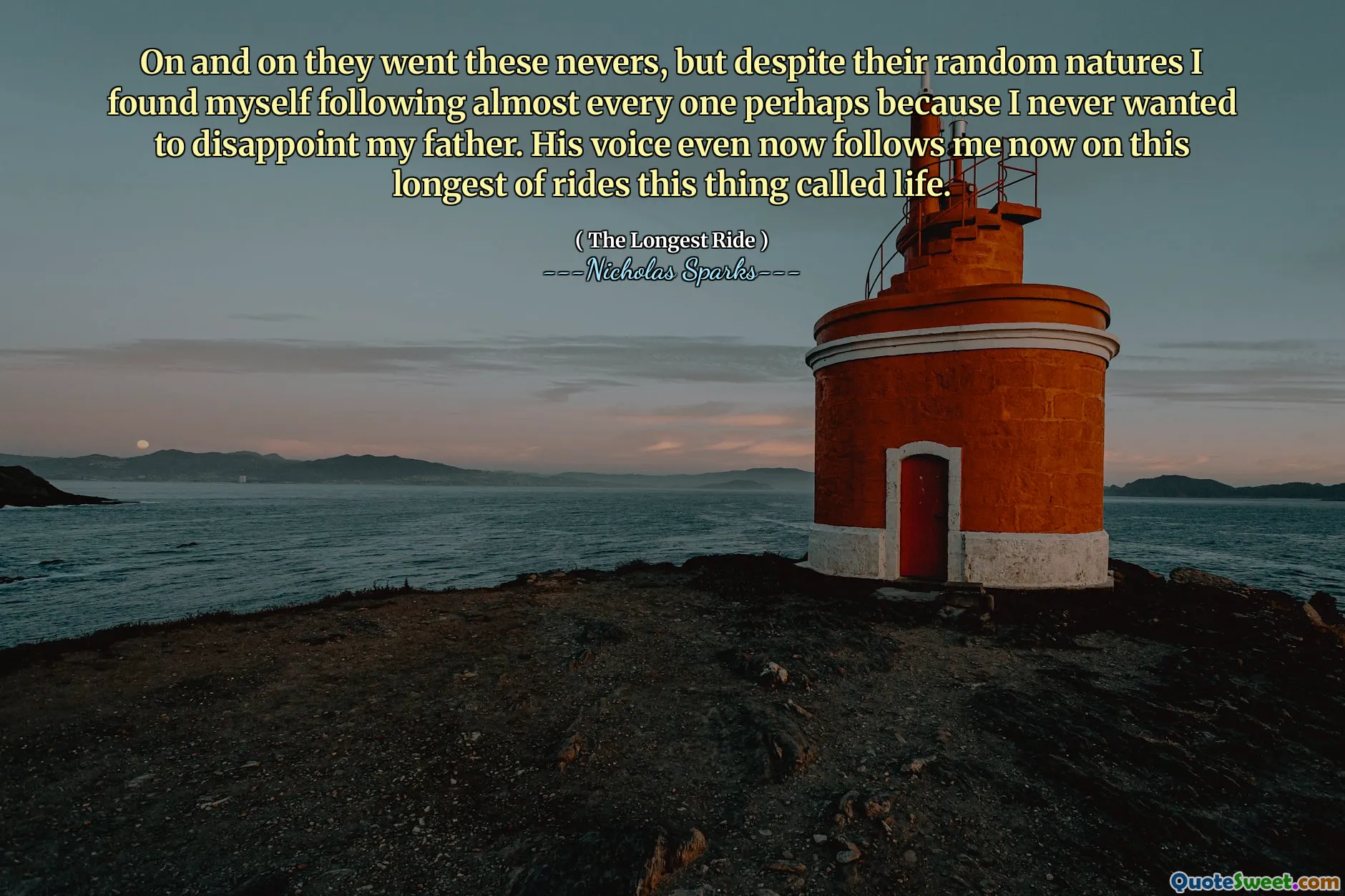
On and on they went these nevers, but despite their random natures I found myself following almost every one perhaps because I never wanted to disappoint my father. His voice even now follows me now on this longest of rides this thing called life.
This quote poignantly captures the human tendency to follow invisible or unpredictable paths dictated by personal values, memories, and desires. The 'nevers' represent the countless barriers, doubts, or societal expectations that challenge our journeys, often appearing random and uncontrollable. Despite this randomness, the narrator admits to aligning with almost every 'never,' suggesting a deep-seated influence—likely the impact of a parental figure or an internal moral compass. The desire to avoid disappointing a father underscores how parental expectations and emotional bonds often shape our decisions and life trajectories, sometimes overriding our own instincts or preferences.
The metaphor of life as a long ride emphasizes the ongoing, sometimes arduous, nature of personal growth and decision-making. The mention that his father’s voice 'even now follows me' reveals the enduring influence of these early guiding voices, whether they are encouragements, warnings, or simply memories. It evokes a universal experience—how our past, especially figures of authority or love, continues to guide, shape, and sometimes haunt us as we navigate our life’s journey.
This reflection underscores the complexity of personal identity, shaped by both internal drives and external expectations. It highlights the tension between authenticity and the desire to honor those who have influenced us. Ultimately, the quote reminds us that our life’s story is a blend of uncertainty and tradition, with each choice echoing a mixture of independence and connection. It prompts us to consider how much of our pathway is self-driven versus influenced by those who have left marks on our psyche and soul.
(The Longest Ride) — Nicholas Sparks

